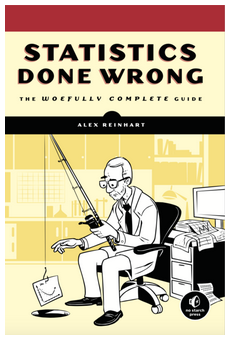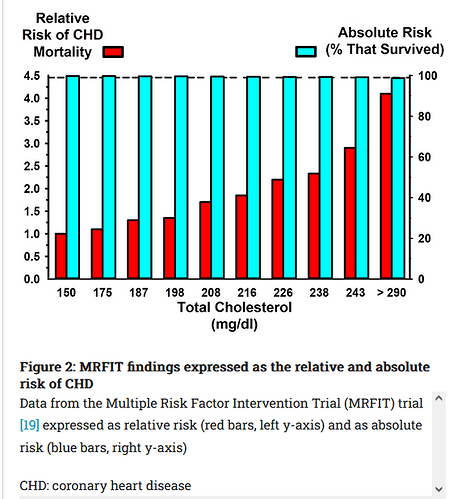Mainly statins, but some older and newer drugs too.
David Diamond's latest, this time about RR (relative risk) versus AR (absolute risk) for drugs for heart disease
@ctviggen Yes indeed, this is one of the many ways that statistics are used to mislead folks. Statistics are great, but not all statisticians are so wonderful 
Here’s a delightful read that covers many of those misleading methods. My personal favorite…
https://www.statisticsdonewrong.com/

[p.s. - This thread might be a good candidate for the all-new “Show me the garbage” category. ]
@SomeGuy It might be a candidate for that category, as that is really what it’s describing. And I like that link.
Good enough. I went ahead and moved it over to the garbage heap. I’m now officially dangerous. 
A fascinating article that documents in writing the assertions Prof. Diamond has made in several of his lectures available on-line. It somehow seems more shocking to see it all in writing, doesn’t it?
Especially when it’s presented this way:
The relative risk (red bars) looks much worse as cholesterol goes higher, but the absolute risk is the blue bar right near 100, and it’s essentially unchanged.
For someone like me, who likes to think “visually”, this really helps.
There’s a blog I read a couple of times/week by a guy who bills himself as “Statistician to the Stars!” (I think the exclamation point is required), William Briggs. One of his most regular attacks on the way academic papers are done is the quest for “wee P values” and how it’s pretty meaningless.
He’s also a regular contributor in conferences on trying to improve science and the Broken Science Initiative.
Definitely mind-expanding. Sometimes mind-blowing.
I’d love to go to that. Thomas Seyfried for his cancer research and thoughts, and Malcolm Kendrick for his heart disease thoughts, would be great. I think both of them have what are likely the correct ideas in their field of thought. Malcolm Kendrick’s 50+ blog posts on what causes heart disease should be required reading for pretty much everyone, even if you disagree with his ideas. (Let’s ignore covid, if they get to that.).
Did you happen to read this?
That graph that shows up in the preview blew my mind, but reality is what it is.
I’m a lifelong advocate of the saying that "the most important phrase in all of science isn’t ‘Eureka! I’ve found it!’ It’s, ‘that’s funny…’ " Pretty much all advancement in science and engineering comes from investigating the things that have “that’s funny” applied to them.

